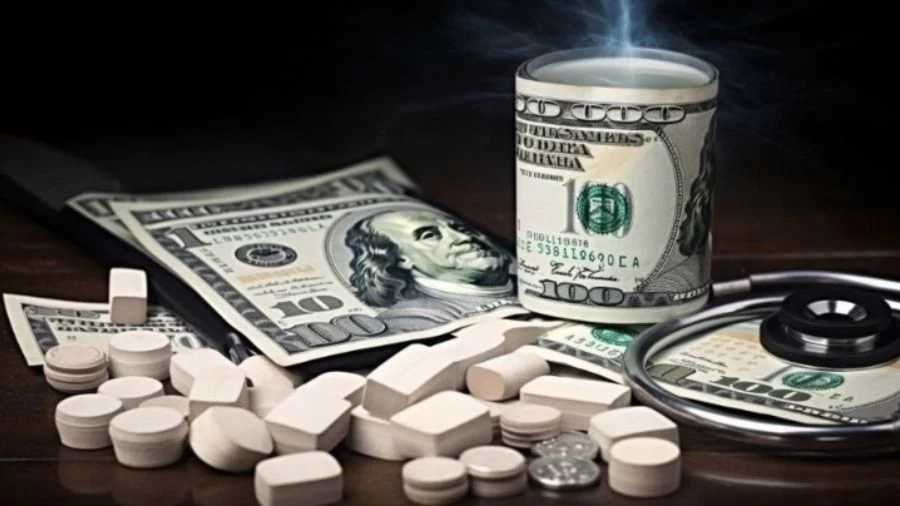
Does Medical Debt Affect Your Credit Score? How Does Medical Debt Affect Your Credit Score?
Yes, medical debt can potentially impact your credit score, especially if it goes to collections, but changes in credit reporting policies, like the exclusion of unpaid medical debt below $500 as of April 2023, have influenced its immediate effects.
by Kowsalya
Published Aug 09, 2023 | Updated Jan 03, 2024 | 📖 5 min read
Does Medical Debt Affect Your Credit Score?
Yes, medical debt can potentially affect your credit score, but it usually doesn't have an immediate impact. Most healthcare providers don't report payment activity to credit bureaus unless the debt is sent to a collection agency. If your bill becomes significantly past due and is sent to collections, it may appear on your credit report after a waiting period.
However, as of April 2023, the three major credit bureaus removed unpaid medical debt below $500 from credit reports. Unpaid medical collections over $500 may appear on your credit report after a 365-day waiting period, potentially impacting your credit score for seven years. It's essential to check your credit report regularly and address any inaccuracies or unpaid medical debt promptly
How Does Medical Debt Affect Your Credit Score?
Medical debt can impact your credit score, but the severity depends on various factors. Unpaid medical bills may not immediately affect your credit, as most healthcare providers don't report to credit bureaus.
However, if the debt goes to collections, it can appear on your credit report after a waiting period. As of March 31, 2023, credit bureaus exclude medical collections under $500. Larger unpaid medical collections over $500 can remain on your credit report for seven years, negatively affecting your credit score. It's crucial to address medical bills promptly, ensuring accuracy and exploring payment options to mitigate credit score impact.
How Do I Remove Medical Bills From My Credit Report?
Removing medical bills from your credit report can be challenging, but it's possible through various strategies. Here are steps you can take to remove medical debt from your credit report:
Review Your Credit Report
Obtain a copy of your credit report from each of the three major credit bureaus – Equifax, Experian, and TransUnion. You are entitled to one free report from each bureau annually through AnnualCreditReport.com.
Check for Accuracy
Examine the medical bills listed on your credit report for accuracy. Ensure that the information, including the amount owed and the dates, is correct.
Verify Insurance Coverage
Cross-check your medical bills with the explanation of benefits (EOB) provided by your health insurance company. Confirm that your insurance has covered the agreed-upon costs.
Contact Medical Provider
If you find discrepancies or errors, reach out to your medical provider and request an itemized bill. Discuss any issues with them and resolve billing discrepancies directly.
Negotiate with Health Providers
If you're facing financial challenges, consider negotiating with your medical provider. They may be willing to reduce the amount owed or work out a manageable payment plan.
Dispute Inaccuracies with Credit Bureaus
If you believe the medical debt is reported inaccurately, file a dispute with each credit bureau reporting the error. Provide supporting documentation and a clear explanation of the dispute.
- For Equifax, you can file a dispute through myEquifax.
- Utilize the dispute resolution process outlined on the respective websites of Experian and TransUnion.
Monitor the Resolution
Keep track of the dispute resolution process and ensure that corrections are made to your credit reports. Credit bureaus typically have a timeframe within which they investigate and resolve disputes.
Consider Professional Help
If the dispute process proves challenging, you may seek assistance from credit repair services or legal professionals specializing in credit issues.
Maintain Good Financial Practices
Going forward, prioritize timely payments and responsible financial management to positively impact your credit score.
Does Bankruptcy Clear Medical Debt?
Yes, bankruptcy can potentially clear medical debt. Bankruptcy doesn't offer a selective approach to discharging specific debts; it encompasses all debts, potentially including medical ones. The outcome hinges on the nature of your debts and the type of bankruptcy filed.
Bankruptcy categorizes debts into "secured" or "unsecured," and "priority" or "nonpriority." Secured debts are linked to assets like homes or cars, while unsecured debts lack such collateral. Priority debts, such as taxes, student loans, child support, and alimony, are unsecured but hold special significance.
Medical bills generally fall under the category of nonpriority unsecured debts. They are among the debts most likely to be discharged during bankruptcy, eliminating the obligation for repayment. While this discharge may be unfavorable for creditors, it offers relief for borrowers by freeing them from the burden of repayment.
What is Medical Debt?
Medical debt is a substantial financial burden that many individuals face due to their inability to cover the costs of medical care, treatments, and services they've received. This type of debt has become a pervasive issue in the United States, with Americans collectively owing over $140 billion in unpaid medical bills. The underlying reasons for this growing problem are twofold: the lack of adequate health insurance coverage and the continuously rising costs of healthcare.
People who find themselves unable to pay their hospital bills and have accumulated medical debt face serious consequences. One of the most significant consequences is forgoing necessary medical care, such as doctor appointments, essential tests, treatments, and prescription medications. As reported by the Kaiser Family Foundation, a health policy analysis nonprofit, this can have a detrimental impact on their health and well-being.
Does Medical Debt Affect Your Credit Score? - FAQ
1. Can medical debt impact my credit score?
Yes, medical debt can affect your credit score, but recent changes have reduced its impact compared to other debts.
2. What changes were made to medical debt reporting in 2022?
Major credit bureaus removed repaid medical debt from credit reports, extended the time before debt appears, and stopped reporting medical debt under $500.
3. How long does a Chapter 7 bankruptcy stay on credit reports?
A Chapter 7 bankruptcy can stay on credit reports for up to 10 years from the filing date.
4. What are alternatives to bankruptcy for managing medical debt?
Alternatives include negotiating with providers, entering debt management plans, consolidating debt, selling assets, and crowdfunding.
5. What actions did the Biden administration take to alleviate medical debt burden?
The administration introduced measures to prevent medical debt consideration in federal loan program applications, aiming to reduce financial strain.




